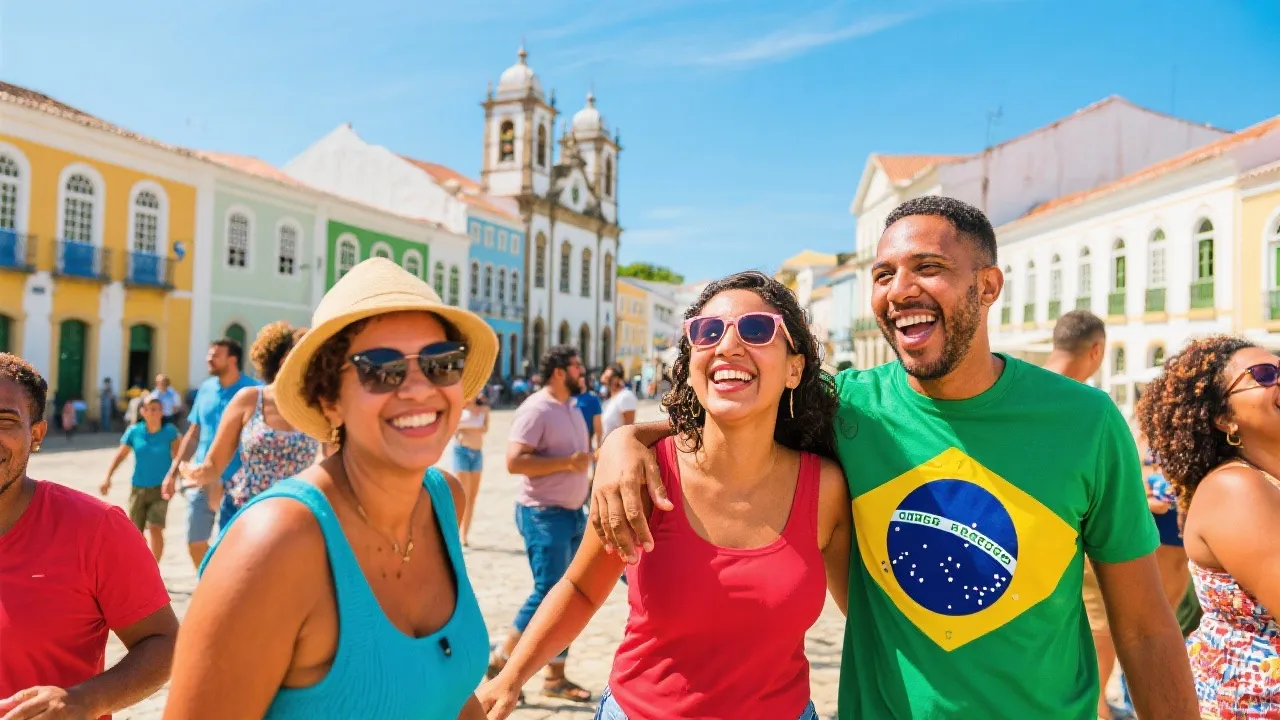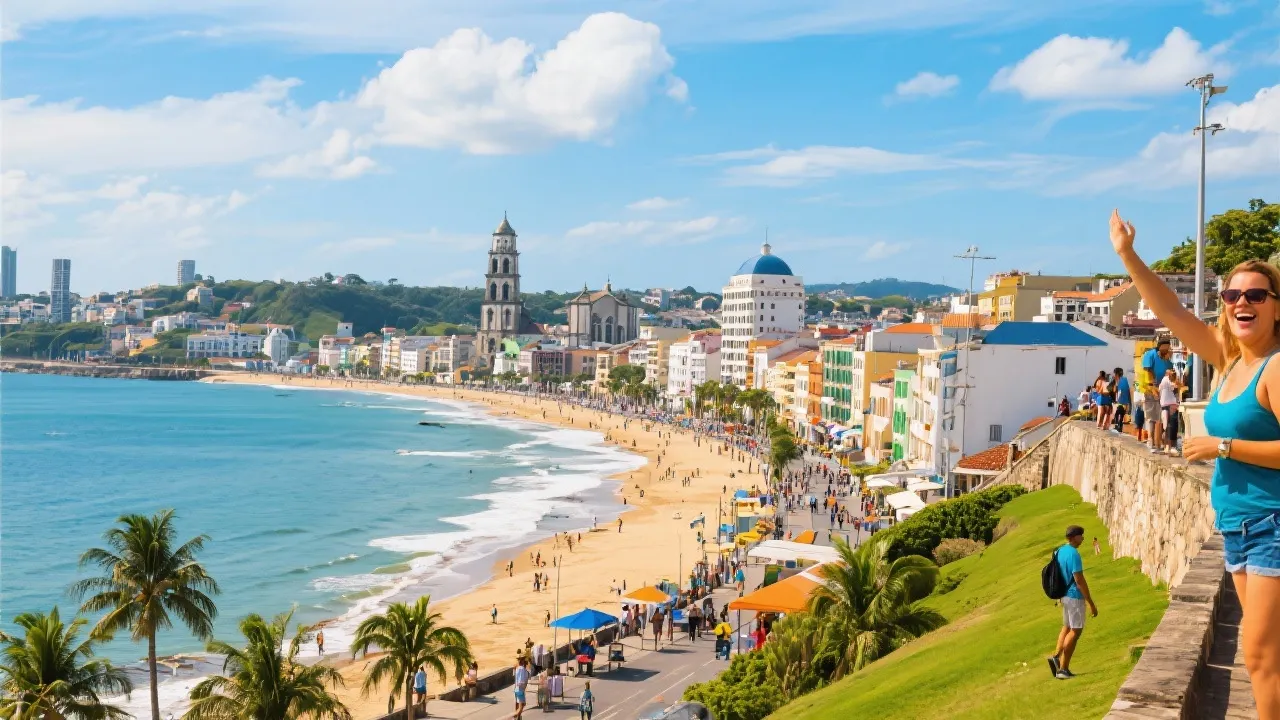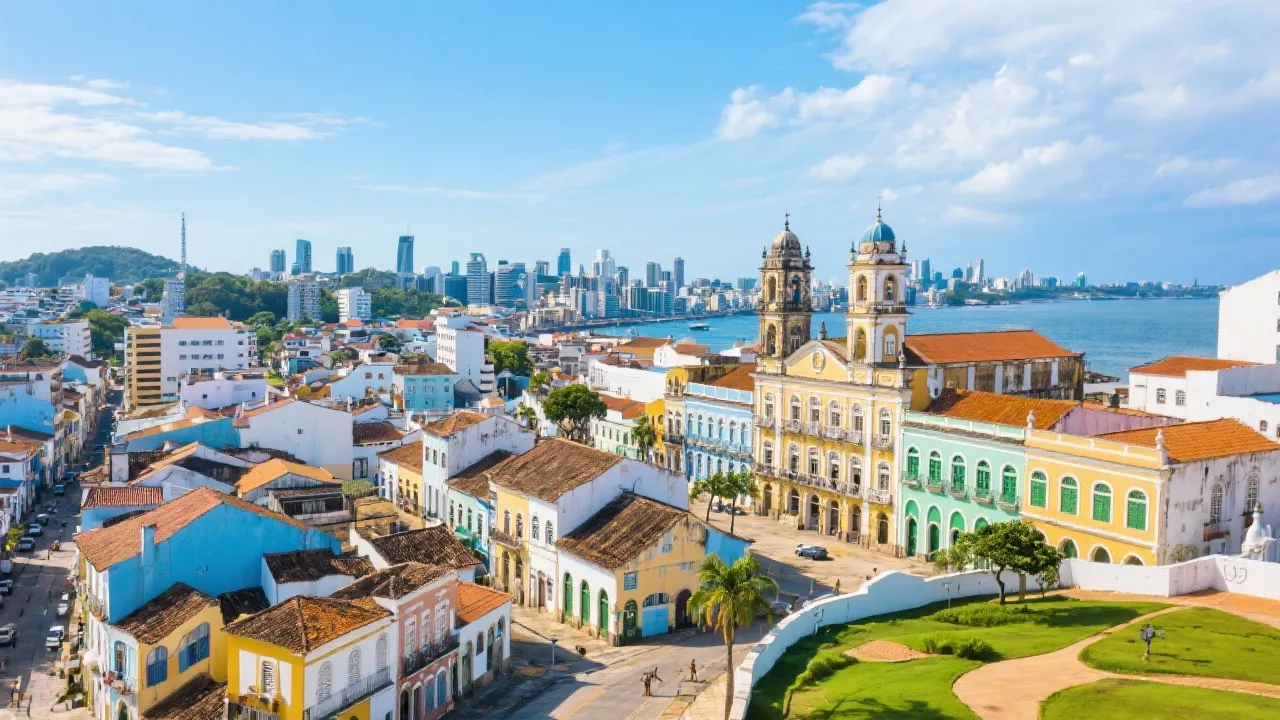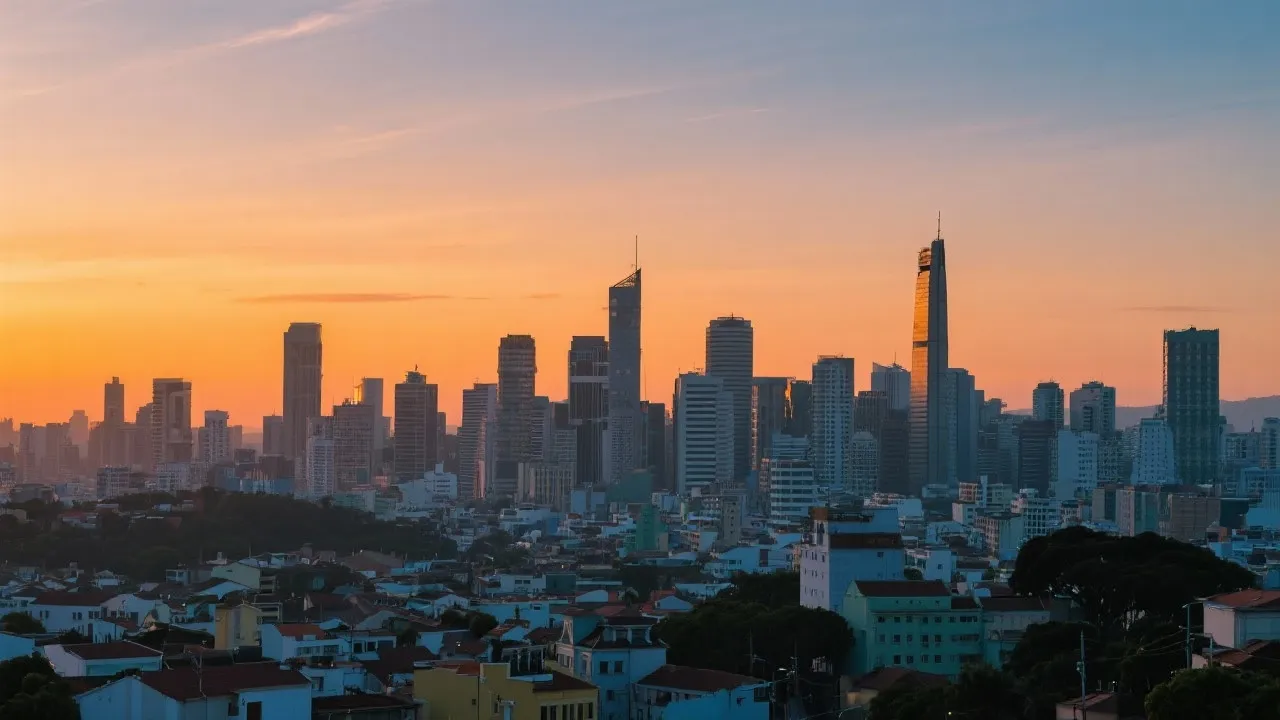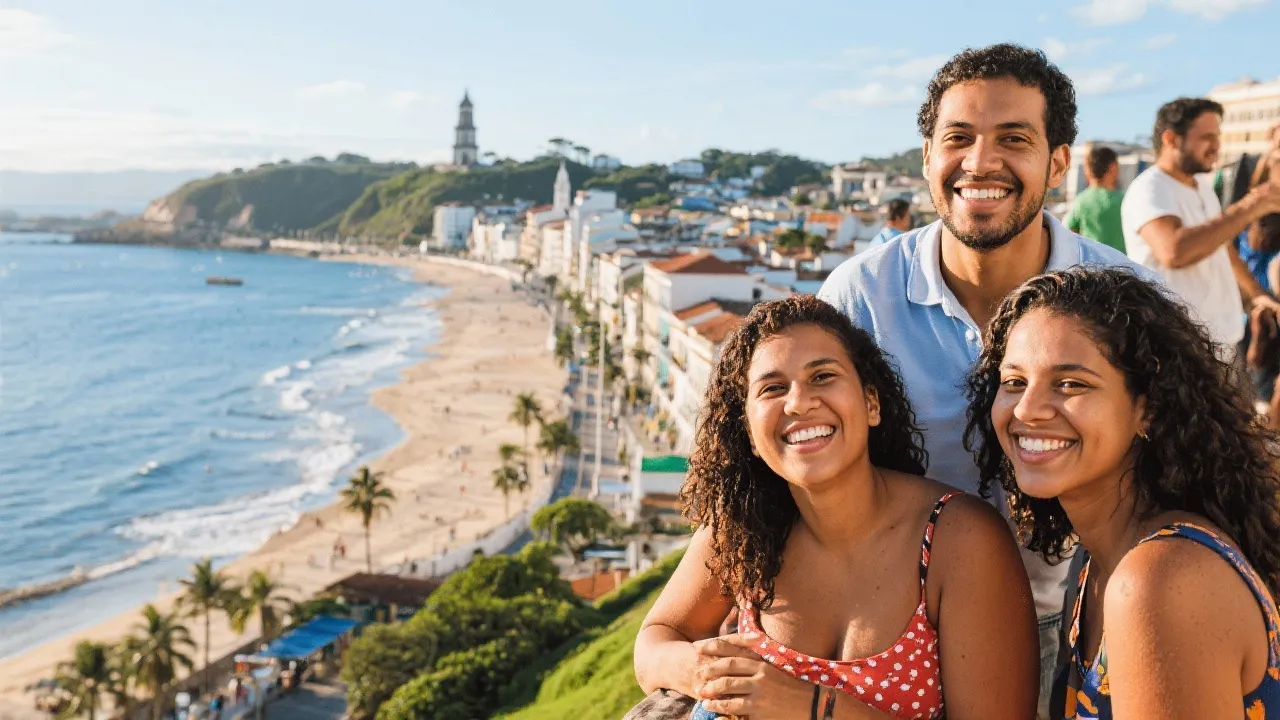Discovering Sorridente Salvador's Charms
Explore the vibrant heart of Sorridente Salvador, a city known for its rich history, lively culture, and warm-hearted residents. This guide delves into the essence of Salvador, offering insights into its unique attractions and notable features. Discover the cultural gems, local customs, and beautiful landscapes that make Salvador a remarkable place, guided by expert analysis and local insights.
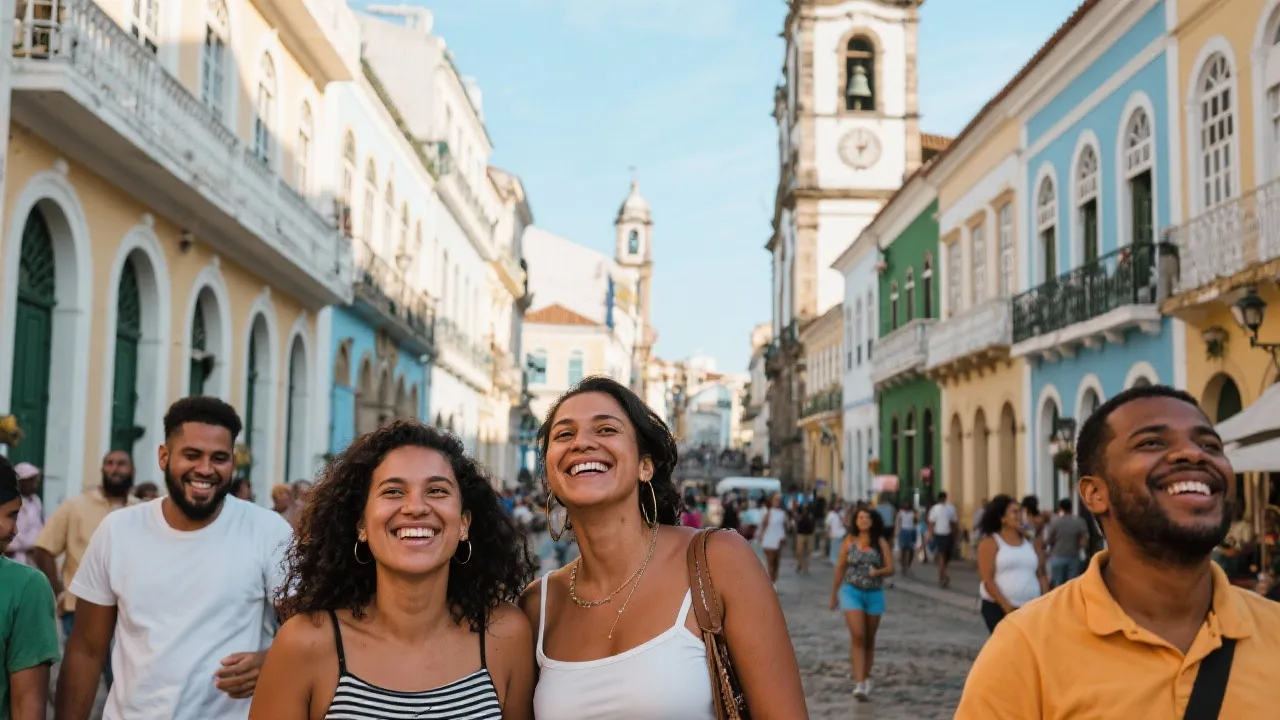
Introduction to Sorridente Salvador
Sorridente Salvador, affectionately known as the "smiling" city, offers not only breathtaking landscapes and an inviting atmosphere but also provides a unique blend of historic charm and modern vibrancy. Established as one of the oldest colonial cities in the Americas, Salvador is renowned for its architectural beauty, Afro-Brazilian culture, and festive ambiance. The city's diverse heritage is reflected in its people, architecture, music, and culinary arts, creating an engaging tapestry that draws visitors from around the globe.
Historic Background and Cultural Significance
The city's deep historical roots are evident in its colonial architecture and historical sites. Salvador was Brazil’s first capital, and its Pelourinho district is a UNESCO World Heritage Site, boasting pastel-colored buildings, cobblestone streets, and an array of churches dating back to the 17th and 18th centuries. Among the most notable structures are the Church of San Francisco, famous for its interior lined with gold leaf, and the Cathedral Basilica of Salvador, which showcases baroque architecture at its finest. This area is not only a testament to Salvador’s rich past but also a vibrant center for cultural activities and live music performances.
In addition to its architectural marvels, Salvador's historical significance is rooted in its status as a major port city during the slave trade. The influence of African culture is palpable in the city’s festivals, music, and cuisine. This cultural blend creates a rich environment that celebrates its roots through various art forms, including capoeira, an Afro-Brazilian martial art that combines elements of dance, acrobatics, and music. Local artists and performers can often be seen showcasing their skills in the streets, inviting both locals and tourists to participate in the fervor of their traditions.
Experience the Vibrant Festivals
One cannot discuss Salvador without mentioning its lively festivals. The city hosts one of the most exciting Carnival celebrations in the world, characterized by lively parades, Afro-Brazilian rhythms, and a unique energy that envelops both locals and tourists. Carnival in Salvador is distinct because it focuses on music and dance as forms of expression. The streets are filled with trios elétricos—large trucks outfitted with sound systems and bands playing for crowds that follow them, dancing and celebrating in a vibrant display of culture.
Sorridente Salvador also celebrates Bahia’s rich cultural mix through events like the Festival da Lavagem do Bonfim, which showcases traditional ceremonies and dances. During this festival, thousands of people make a pilgrimage to the Church of Bonfim to wash the steps in a symbolic cleansing ritual that honors the church’s patron saint. Participants, clad in white, dance, sing, and celebrate in a joyous outpouring of faith and community spirit. Even those unfamiliar with the customs find themselves embraced by this unique atmosphere, with locals offering food and drinks to ensure everyone has a good time.
The Festa de Iemanjá, honoring the Afro-Brazilian goddess of the sea, is another vital cultural celebration held every February. On this day, thousands of devotees gather at the beach, bringing offerings such as flowers, food, and even small boats to place in the water, asking for blessings in return. The connection to the ocean underscores Salvador’s coastal identity and the importance of spirituality in daily life, further deepening visitors' understanding of the local culture.
Exploring the Local Cuisine
Salvador's gastronomy is a direct reflection of its unique cultural tapestry. From acarajé, a popular street food made with black-eyed peas and shrimp, to moqueca, a rich seafood stew flavored with dendê oil and coconut milk, the culinary offerings are a feast for the senses. These dishes not only tantalize the taste buds but also tell the story of Salvador’s African and indigenous influences. Acarajé is particularly notable as it is often served by Baiana vendors, women adorned in traditional dress who prepare this delicacy in street stalls throughout the city.
A visit to Salvador would be incomplete without indulging in the diverse offerings of local restaurants. Street markets such as the Mercado Modelo provide an excellent opportunity to sample a variety of dishes, while upscale restaurants often reinvent traditional dishes with contemporary flair. Other local delights include vatapá, a creamy dish made from bread, shrimp, and coconut milk, and bobó de camarão, a delightful shrimp dish made with cassava puree. Each dish reflects the history and heritage of the region, infusing meals with rich cultural significance.
Additionally, Salvador is home to a thriving drinks culture. Be sure to try the local cachaça, a distilled spirit made from sugarcane, which is often enjoyed in a caipirinha cocktail. For those preferring a non-alcoholic option, the refreshing coconut water served straight from the shell is a must-try. These beverages complement the culinary experience and highlight the tropical roots of Salvador's ingredients.
The Scenic Beauty of Salvador
Salvador's geographic location offers stunning coastal views and pristine beaches. Visitors can enjoy the serene beauty of Praia do Forte or the bustling atmosphere of Porto da Barra. The coastline is a perfect backdrop for experiencing outdoor activities, including sailing, diving, and simply soaking up the sun. The golden sands and crystalline waters are not only picturesque but also host various music events and sports activities, making them popular among both tourists and locals alike.
For those who enjoy nature, the Lagoa do Abaeté in the Abaeté Park is a popular destination known for its beautiful lagoons, sand dunes, and mangroves. The area is rich in wildlife, and visitors often enjoy picnicking or hiking along the trails. Visiting the nearby Chapada Diamantina National Park allows for even more exploration, with its stunning landscapes, waterfalls, and hiking opportunities that reveal the natural beauty of the Bahia region.
As the sun begins to set, the coastline transforms, offering breathtaking views that are perfect for capturing stunning photographs. The city's beaches are lined with bars and restaurants where patrons can enjoy the sunset while sipping on refreshing drinks, further enhancing Salvador's vibrant atmosphere. Every evening, locals and visitors alike flock to these beachside spots to unwind, socialize, and appreciate the beauty of the surroundings, bringing a magical closure to the day's activities.
Cultural Landmarks and Museums
For those interested in a deeper dive into Salvador's rich history, the city offers an array of museums and cultural landmarks. The Museu Afro-Brasileiro provides insight into the impact of the African diaspora on Brazilian culture, showcasing art, artifacts, and historical pieces that celebrate this heritage. Visitors can explore exhibitions that cover various aspects of life, religion, and art in Africa and how these traditions traveled and transformed within Brazilian society.
The Museum of Modern Art hosts contemporary exhibitions reflecting the creativity that emanates from Salvador's residents. The museum often features works by local artists, providing a platform for their voices and perspectives. This focus on local talent makes the museum an essential stop for understanding the current cultural landscape and artistic expression in Salvador.
In addition to dedicated museums, numerous cultural institutions throughout the city offer workshops, performances, and classes where visitors can experience Brazilian dance, music, and cooking firsthand. Participating in these interactive experiences allows for immersive learning and a deeper connection to the local culture. Whether attending a samba class, a capoeira demonstration, or tasting classes, such activities are designed to engage and entertain, immersing guests fully in the culture of Salvador.
Integration of Local Expressions and Nuances
While exploring Salvador, visitors will quickly notice the warmth and friendliness of its people, often described as "sorridente" or smiling. This welcoming spirit is a hallmark of the Bahian culture, as residents readily share stories, traditions, and a piece of their lives with travelers. Engaging in conversations with the locals can provide profound insights into the daily lives and cultural practices that may not be immediately evident to those just passing through.
Authentic Bahian hospitality is experienced in various forms, from the simple act of sharing a meal to offering directions or sharing recommendations for local attractions. This connection fosters a sense of community and ensures that guests feel at home during their stay. Many locals are eager to demonstrate their rich heritage through storytelling or by teaching a traditional dance, reflecting the emphasis placed on community and shared experiences within the culture.
This spirit of sharing is particularly evident in gatherings and celebrations, where the emphasis lies not only on the festivities themselves but also on the connections formed through music, dance, and food. Salvador is a living testament to the belief that life is best celebrated together, showcasing how cultural expressions are intricately woven into the daily lives of its people.
Shopping and Local Markets
Shopping in Salvador is an experience unto itself, with various markets that reflect the city’s artistic soul and culinary delights. The Mercado Modelo, located in a historic building that once served as the city’s customs house, is a bustling hub where visitors can find handicrafts, souvenirs, and regional foods. Artisans display their work, highlighting traditional Bahian crafts, such as handmade jewelry, pottery, and textiles, making it a perfect place to find unique gifts to take home.
The local craft market is also an excellent opportunity to connect with artisans and learn about their creative processes. Whether observing the intricate techniques used to create handmade goods or participating in pretzel-making workshops, visitors gain a deeper appreciation for the craftsmanship inherent in Bahian culture. Moreover, these interactions often lead to meaningful conversations and friendships, enriching the travel experience significantly.
The experience extends beyond mere shopping, as food stalls within the Mercado Modelo allow visitors to sample local delicacies, including fresh seafood and sweet treats. Eating while browsing enhances the market experience, providing visitors with fuel to continue exploring the colorful stalls and lively atmosphere around them.
Nightlife and Music Scene
As night falls, Salvador blooms into a vibrant tapestry of sounds and lights, becoming a true celebration of music and dance. The city is the birthplace of samba, axé, and various Afro-Brazilian rhythms that pulse through its nightlife. The famous bars and nightclubs throughout the city offer visitors a chance to experience live music, where local bands and dancers fill the space with their energy, inviting everyone to join in the festivities.
Pelourinho is a particularly famous area known for its lively nightlife, with many establishments hosting a range of music genres from traditional to contemporary. The atmosphere is exhilarating, as impromptu performances often break out in the streets, giving spectators a taste of the city’s rich cultural heritage. Such vibrant energy creates a welcoming space where people feel encouraged to dance and express themselves freely.
For those interested in a more immersive experience, participating in a local forró dance class is a fantastic way to learn renowned dance styles while enjoying the lively social atmosphere. Beyond the dance floors, numerous events featuring folk celebrations, cultural rituals, and art shows often occur in the city, ensuring visitors can engage with the city's artistic perspectives at any time.
FAQs
What makes Salvador unique?
Salvador is unique due to its historical significance as Brazil's first capital, its vibrant Afro-Brazilian culture, and its famous carnival celebrations. The city's blend of traditional and modern influences provides a rich context for exploration.
What are must-visit places in Salvador?
Must-visit places include the Pelourinho district, the breathtaking beaches, and cultural landmarks like the Museu Afro-Brasileiro. Additionally, engaging with local artisans and experiencing the nightlife are integral parts of a Salvador experience.
When is the best time to visit?
The best time to visit Salvador is during the Carnival season for a full cultural experience, or summer months like December to March for beach activities. Each season offers unique opportunities for exploration, culture, and cuisine.
With a profound understanding of Sorridente Salvador’s cultural essence and breathtaking beauty, visitors are sure to find their hearts captured by this smiling city. The blend of history, music, dance, and delicious food provides an unforgettable experience for all who venture into its charming embrace. From its colorful streets and vibrant festivals to its beautiful beaches and rich culinary tradition, Salvador is a city that promises adventure and connection, ensuring that it will leave a lasting impression long after visitors have returned home.
-
1

Revolutionizing Smiles: The Breakthrough Innovations in Dental Implants Changing Oral Health Care Forever
-
2

Unveiling the Top Dental Implant Options for Seniors: Transform Your Smile with the Ultimate Guide to Restored Radiance
-
3

Understanding Dental Implants Costs and Financing
-
4

Discover the Key to a Dazzling Smile: Your Ultimate Handbook for Selecting the Ideal Tooth Replacement Option
-
5

Affordable Dental Implants Solutions Near You





